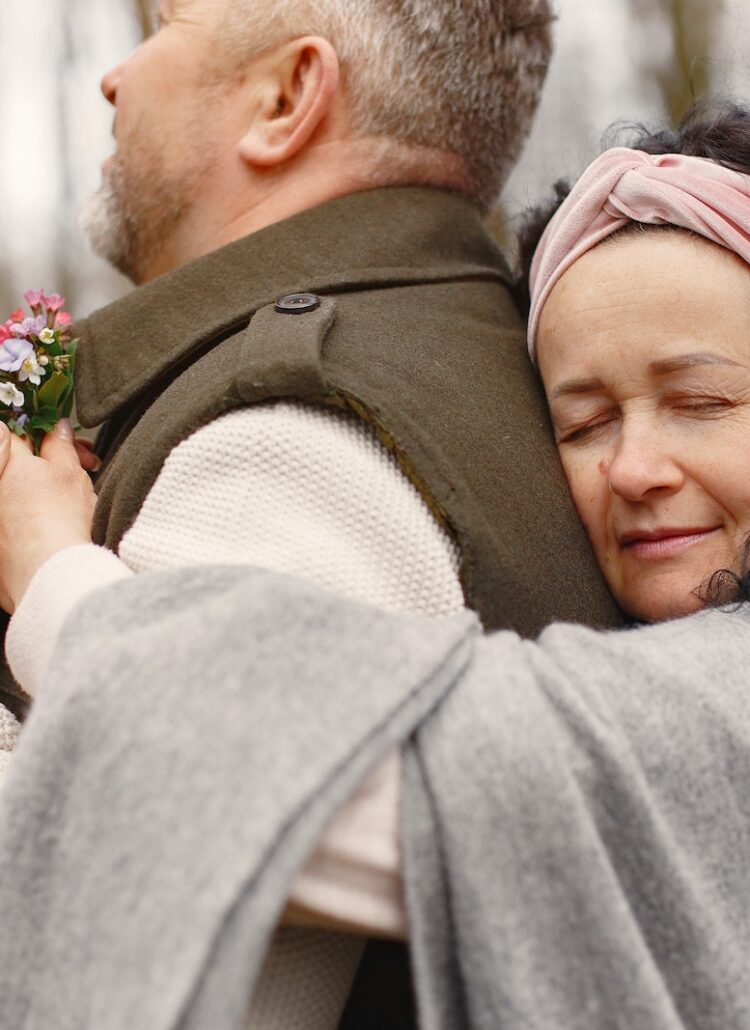In this post, where going to talk about a broken heart within the context of relationships.
Break-ups suck… Let’s talk about why they hurt and how to heal a broken heart when it’s all said and done. Full disclosure: even healing can be a painful process.
There are so many dynamics to this one conversation… because there are so many different types of breakups and sometimes they happen for valid reasons.
If you’re reading this, I’m going to assume you were the one who loved until the end… and maybe even a little longer than that.
Breakups hurt when they’re not mutual.
And they hurt, especially, when it is painfully obvious that it’s over… for good.
“Grief, I’ve learned, is really just love. It’s all the love you want to give, but cannot.”
jamie anderson
When we are breaking up: we are separating, disconnecting, disassociating, divorcing, severing, splitting, detaching, and disuniting from a person. (You know what all these synonyms tell me? That breakup’s hurt.)
I’ve spoken to a lot of people who say love is different. They say it’s different to love a parent, different to love a spouse, different to love a friend, and different to love a child. And on some levels, I can understand.
Love comes about differently. Love is expressed differently. And, maybe this was just me or maybe you can relate. But once real love is at play, it is meant to endure. I wrote a post titled: How Do I Know I’m In Love. It might help give you some insight on that topic.
If you are the person who loved from a wise, healthy, and whole place, healing your broken heart is not going to be about just “getting over the other person.” It’s going to be about learning to love them differently. (I write this begrudgingly lol…)

Alrighty, here are 16 steps to healing your broken heart:
1. Don’t Use Pride As A Painkiller
Have you ever loved someone so much that you were willing to profess it in front of everyone? Friends… family… maybe some random witnesses in-between (lol).
Maybe you were dating. Maybe you were engaged. Maybe you were married. Either way, you loved the person enough to say it. Enough to feel safe in it. Enough to share it with the world.
Why? Because you felt seen, known, loved by the person you were with.
After rejection, it’s easy to let the pain mold itself into pride.
Oftentimes, people like to avoid prolonged feelings of sadness or hurt. When these more tender and intense feelings last for an extended period of time, people will turn away from the things that make them feel “less powerful.”
Anger makes people feel like they have more control.
Numbness makes people feel like they have more control.
And pride… pride makes people feel in control.
- Pride will make you feel embarrassed. It will hurt your ego.
- Pride will puff you up (or cause you to look for people who will do it for you).
- Pride will become a veiled attempt to protect everything vulnerable.
- Pride will focus on the other person’s failures and make them a villain in your mind.
- Pride will produce apathy and animosity and anger because it feels better than looking “weak” and “wounded.”
The list could go on and on. It’s a broken and superficial coping mechanism.
The danger in allowing pride to get in the way of your healing process is that it has the capacity to end up negatively shaping who you are and the kinds of relationship dynamics you’ll have in the future.
In the long run, it can lead to arrogance, entitlement, and a disregard for others. It can keep you from seeing your faults and flaws and prevent you from seeking help when you need it. You’d be surprised all the ways pride can creep into your life.
In your healing process, be conscious of the opportunities you have to guard your heart. And sometimes the best way we can do that is simply to push our pride to the side, admit that we were hurt, see ourselves and others as we are, and choose to remain kind and tender-hearted people.
2. Forgive
There is not one good thing that comes from being unforgiving. It’s bad for your brain, it hurts your body, and it’s toxic for the people closest to you.
“Holding a grudge is like drinking poison and waiting for the other person to die.”
UNKNOWN
There’s this other quote that so challenges me: “To forgive is to set a prisoner free and discover that the prisoner was you.”
I was struggling to give practical words to explain an abstract concept like forgiveness. We all get the gist of it but I don’t think we know how to put it into words.
So, I found this article titled Forgiveness by Stephen Marmar which says there are 3 types of forgiveness: exoneration, forbearance, and release. But there is one, specifically, that applies in the context of a breakup:
- Release: It doesn’t exonerate or require forbearance or demand that you continue the relationship. Instead of defining much of your life in terms of the hurt done, you release your bad feelings and your preoccupation with the negative things that have happened; you let go of the burden, the “silent tax” that is weighing you down and eating away at your chance for happiness.
“To forgive may be divine, but when we understand its dimensions we find that it is within our ability to do it.”
Stephen marmar
Exoneration and forbearance seem to be easy enough within the context of a relationship.
But this concept of release gives us context to forgive after a breakup.
Anticipate that release and forgiveness will be a process. It’s okay that it doesn’t happen in an instant.
3. Let Go
A breakup can feel like a great loss.
Where there was intention, there is now an unlikelihood.
Where there was a family, there is now a mother, a father, and the babies in between.
The picture you imagined might not be the future you see anymore.
Whatever you find yourself holding unto after the breakup, hug it very tightly… and then let it go.
Let go of:
- The person they used to be
- The mostly good person
- Anything you expected to be a little more “perfect”
- Any promise they made to you
- Any regret you feel for letting your guard down
- The expectations you had for the future
- The other person’s potential to change
- The past
(If this is starting to sound depressing and you love Jesus, please refer to my last point.)
Here’s the deal:
There are things you still need to “show up” for.
You need to show up for yourself.
And, if you’re a mother, you need to show up for your babies.
Let go of the things that are broken so that you can rebuild.
Let go of everything that went to waste so that you can preserve what is good.
Yeah, I wrote that.
It’s easier said than done.
4. Know Your Worth
This might not be you but just in case it is I’m going to say it.
When you’ve spent a long time in a toxic environment sometimes you start to identify with it.
- When you’re with someone who does not honor you, you begin to think you’re not worth a higher level of respect.
- When you’re with someone who doesn’t want you, you begin to think you’re not desirable.
- When you’re arguing and bickering and fighting, you start to think that it’s normal.
- When you’re blamed for the other person’s behavior, you start to think you’re the problem.
You think it’s okay to be unloved. It’s okay to be overlooked. It’s okay to be undervalued. It’s okay to not be fought for.
It’s not okay.
This breakup is officially an opportunity for you to stop settling for less than you deserve.

5. Find Ways To Love Yourself
Sometimes it’s easier to think of ways to love ourselves when we think about the ways we express love to other people.
We serve them. We separate time for them. We let them know they are loved. We care for their well-being and their happiness.
Do that for yourself!
Take care of your mind and your body. Do things that make you happy.
- I wrote a post about How To Be Happy. It could give you some ideas to get you started.
Loving yourself is about 3 things: caring for your body, caring for your mind, and caring for your soul.
Here are some examples of caring for your body.
- Get your nails done.
- Get your hair done.
- Go to the gym.
- Eat well.
- Go to the doctor.
Here are some examples of caring for your mind.
- Go to the spa.
- Take up a hobby.
- Practice gratitude.
- Practice rest.
- Manage your thoughts.
Here are some examples of caring for your soul.
- Talk to a therapist.
- Connect with people.
- Read the Bible.
- Give yourself room to feel.
- Pray.
- Give yourself grace.
6. Vent
Allow yourself to feel everything and let everything out as it is. Suppressing your emotions is not good for your brain, your body, or your heart.
Give yourself a chance to vent it all out, authentically.
Whether this means that you go see a therapist, seek counseling from a pastor, talk to a trusted friend, pray, journal, or all of the above. You want to give yourself some sort of outlet.
If you’re new to journaling and you’re interested in getting started, here’s How To Journal. I genuinely believe it’ll be beneficial for you.
7. Get Through Today
I’ve found that being able to focus on the present is actually what allows us to remain tender-hearted while actively dealing with heartbreak. It gives us room to steadily deal with things as they come.
Sometimes when you’re trying to heal a broken heart it’s all you can do to just focus on this one day: to only see as far as the next 24 hours.
It’s very easy to get caught up in trying to understand why things ended the way they did. Try to stop yourself when you notice you’re doing that.
What’s that quote we all know and hate to love?
“God grant me the serenity to accept the things I cannot change, courage to change the things I can, and wisdom to know the difference.”
reinhold niebuhr
As a mother, going through a breakup requires the most excruciating balance of holding on and letting go (both out of love for the babies). If a split is happening within a family, you might try to anticipate pain that may or may not come in the future. I believe you’ll find you only have enough strength to deal with what’s right in front of you.
Therefore don’t worry about tomorrow, because tomorrow will worry about itself. Each day has enough trouble of its own.
matthew 6:34
And finally, out of the best intentions, friends may give you encouragement about the future and say “you have so much more to look forward to.”
Know that it’s okay if you can’t see it. You don’t have to.
Just get through today.
8. Get Back To Yourself
There’s something really interesting that happens when you step back into singleness: you get back to yourself.
It can be refreshing and rejuvenating. It can be as simple as being able to do what you want, when you want, how you want, simply because you want to.
You can revisit your routines, your dreams, your passions, and your ambitions. Or, you can create new ones!
See who you are when you’re on your own.
What parts of you would you like to expand on? What would you like to remain steady? What would you like to change?
9. Affirm Yourself
An affirmation can be a way of supporting, encouraging, and uplifting yourself. Maybe you affirm yourself with a reminder that it’s okay to be vulnerable. Maybe you affirm that healing your broken heart matters. Maybe you affirm that you are a strong, highly-favored, woman.
Affirmation allows you to step into what is real and what is true.

10. Accept Love From The People Who Count
We have a habit of undervaluing the love that comes from the people who love us the most: our parents, our siblings, our children, or others who hold us in very high esteem.
When they tell us we’re beautiful: we say they always say that.
When they tell us they’re proud: we say it doesn’t count if it comes from them.
When they tell us they love us: we say it’s because they have to.
If you’re trying to heal your broken heart, I challenge you to accept love from the people who freely give it to you. Accept love from the people who love you no matter what. Accept the kind of love you don’t have to earn.
Those people are your family: blood or water.
They count the most.
11. It’s Okay To Not Be Okay
I remember being okay for days or weeks straight. And then, all of a sudden, without warning, I wasn’t.
I searched and searched within myself wondering what happened. Why wasn’t I okay? What happened? Did I forget to check in with myself? Did I forget to take care of myself? Did something happen?
If you’re heartbroken after a breakup, it’s okay to not be okay.
No other explanation is needed.
12. It’s Okay To Be Okay, Too
Your inner and outer circle of friends might hold some level of expectation that you shouldn’t be okay. Those friends have walked with you. They’ve heard you. They’ve seen your tears. They’ve seen you in the lowest moments.
They’ll say what I just said: “you know, it’s okay to not be okay.” And when you’re not okay that’s exactly what you need to hear.
But when you find some happiness and it starts to look like you’ve come back to life… you don’t have to exert your energy trying to explain why. Take the look of shock on their face as a sign that you’re on the right track.
It can appear to be all of a sudden.
It can come when everyone least expects it.
And, yes… that’s okay.
13. Set Boundaries
Setting healthy boundaries for yourself is a way of understanding and respecting your limitations. Distance yourself from things that are draining you and learn to say no when you need to. This will keep you from pouring out from an empty cup.
14. Take All The Lessons With You
Whether it’s from successes or failures, there’s always something to be learned. Lessons are things you can always take with you. They help you grow in wisdom and discernment and they’re incredibly valuable.
Be a student of your own life.
15. Watch Over Your Heart
Your heart will tell you whether it’s healed or not.
If something is still broken, or not quite patched up, it’ll come out in how you think, how you feel, and especially what you say.
Watch over your heart. Learn to notice it.
It’s completely normal if you have to revisit one of these steps.
Try not to make decisions from an unhealed place.
16. Pray
When Holy Spirit is involved, He makes “possible the impossible task in front of us.”
And while I encourage you to pray because prayer is powerful, I mostly encourage you to pray because rejection from one person is nothing… it’s nothing when you encounter the Heart of God for you.
Walking with Jesus through this whole thing will help you see all that you stand to gain in the face of all you’ve lost. God is able to be with you perfectly in the highs and lows.
He cares for you.
“He heals the brokenhearted and bandages their wounds.”
psalms 147:3
“The Lord is close to the brokenhearted; he rescues those whose spirits are crushed.”
psalms 34:18



